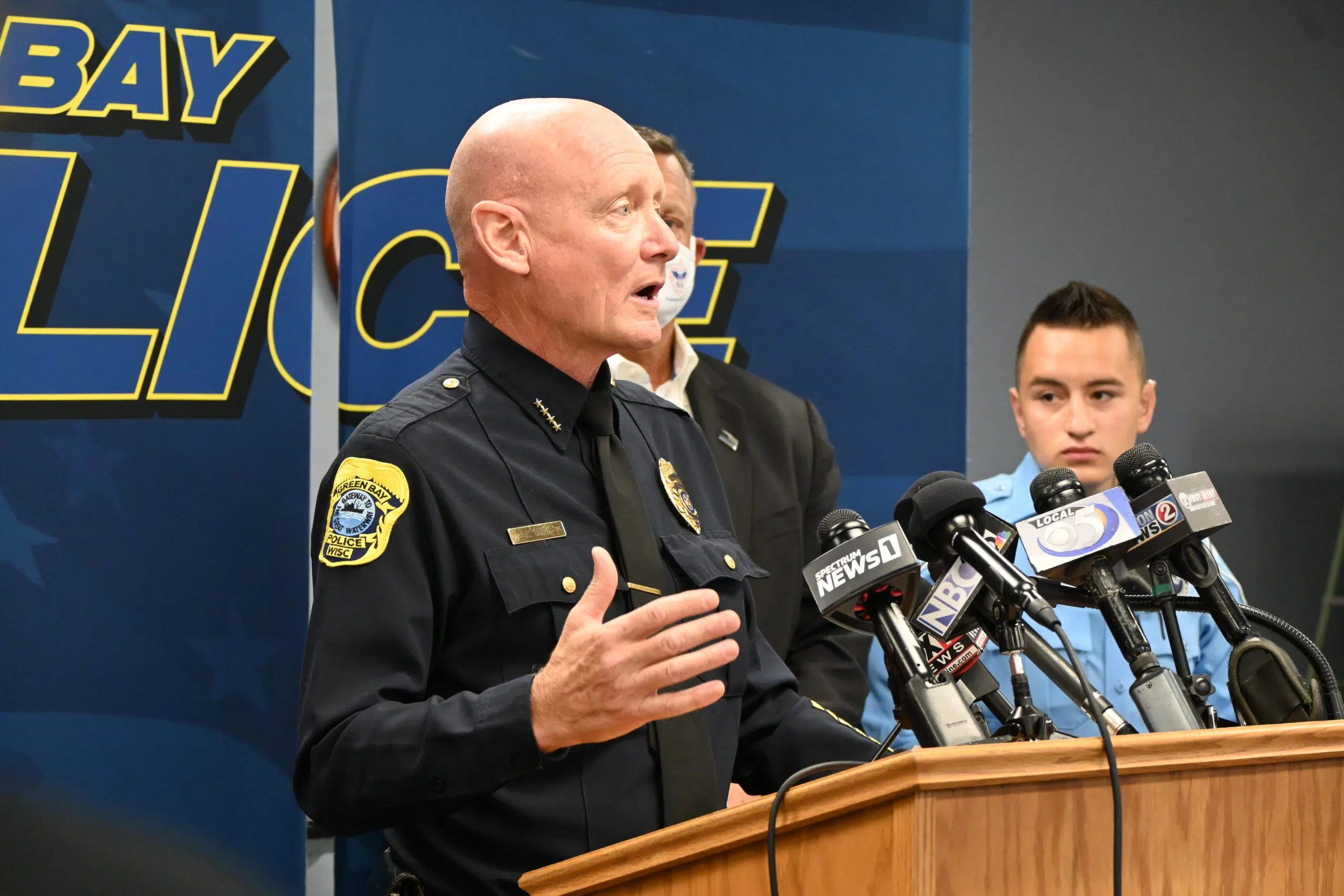GREEN BAY, WI (WTAQ) — Green Bay Police are keeping a very close eye on the developments in the Derek Chauvin trial; specifically, how it’s going to change policing in the United States.
Chauvin, who is white, is the former Minneapolis Police officer involved in the death of George Floyd, who was black, last year.
Green Bay Police Chief Andrew Smith has seen several such reckonings among American Police before, starting when he was a young police officer in Los Angeles during the Rodney King Riots in 1992.
Police, Smith says, learned the value of community engagement from that and other, more recent events.
“If [police] are not listening, then all it takes is a spark like Michael Brown or Rodney King for George Floyd and everybody gets upset,” Smith told WTAQ Thursday. “Then all kinds of bad things happen.”
Smith says the conversation changed after Rodney King, and then again after Michael Brown was killed by police in Ferguson, Missouri. He calls those and the Floyd incident “watershed moments” in American policing.
“We really embraced community policing. We changed the way that we police neighborhoods,” Smith said. “It was no longer ‘us versus them’. It was was no longer an occupying army… it was like ‘let’s work together.'”
In recent years, and especially since Ferguson, there’s been another sea change in policing. Smith says many departments, Green Bay’s included, are making a concerted effort to hire police officers that reflect the demographic makeup of the community–but there’s a lot more to it than that.
“Often times we look at people that want to become police officers, and we have to look at the character of the person and the reasons why they want to become a police officer,” said Smith. “It’s not about driving fast and carrying a gun. It’s about working hard to protect the community.”
It’s not been easy, either. Smith says that recruitment and hiring have been difficult, and that fewer people want to become police officers now than at any point in his 33-year long career.
Derek Chauvin is charged with second-degree homicide in Floyd’s death. Chauvin held his knee against Floyd’s neck for several minutes while attempting to arrest Floyd for allegedly passing a counterfeit $20 bill.






Comments